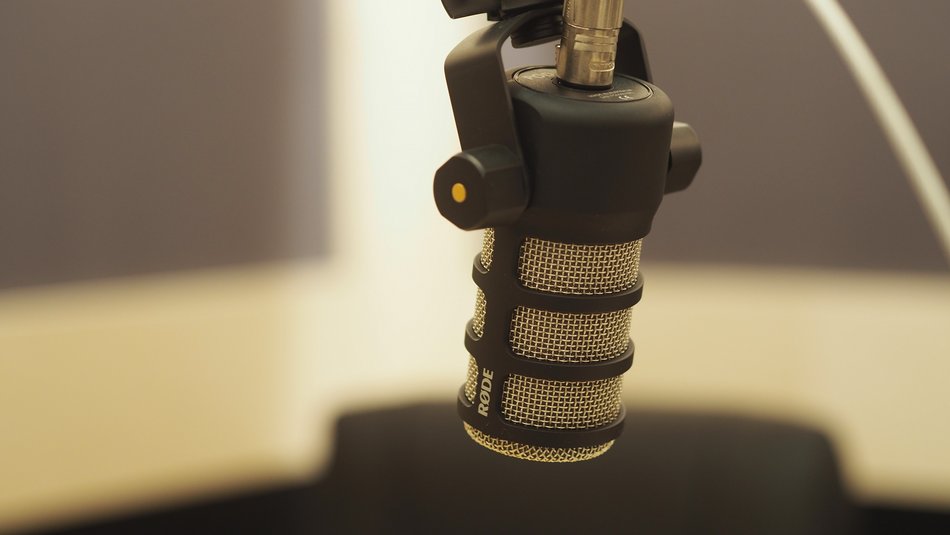
Interviews about the personal sexual violence that you suffered can be extremely emotionally challenging. Before you agree to an interview, you should be aware that the entire process up to publication will involve placing a certain amount of trust in the work of journalists. This is precisely why it is helpful if you make a conscious decision in advance about which questions you will accept and those that you find unacceptable.
I. Before consenting to be interviewed
1. Get an idea of how the interview will proceed.
Interviews never follow the same format. An interview can become extremely tense as it will depend on the type of media and how it obtains information. Get a specific outline about what will happen during the interview: "How can I visualise this?" The actual process might well depend on the print media’s publication cycle. Daily newspaper journalists often have less lead and preparation time for their articles than journalists working for weekly newspapers or magazines. Cameras or recording equipment that will be used during video or audio interviews (TV, radio, podcast, online, social media) might make you very nervous. Another distinction that can be made beforehand is whether it will be a live broadcast or a recorded conversation. The more precise your idea is of how the interview will proceed, the easier it will be for you to decide whether you want to proceed with the interview or not.
2. The basic intention of the interview will also play a role here.
Some interviews with journalists are not intended for publication as they are held just for expanding their background knowledge. In some interviews you will appear as an expert, whereas in others you will be asked to tell your own personal story. Ideally, all these aspects should be clarified when contact is initially made - if not, try to discuss them as much as possible in advance.
"Anyone who speaks publicly about their personal story and the sexualised violence they have suffered should expect a sensitive approach as well as basic knowledge about the issue from the media representative. Clarification about these everyday crimes must not be at the expense of the survivors. This is why the survivors’ board considered it important to include their own experiences in these tips”.
3. Find out precisely who it is who wants to interview you.
We advise you to take a close look beforehand at which medium has requested an interview and then ask yourself: how sensitive has their sexual violence reporting been in the past? Have you had experience with the relevant media company, newspaper publisher or broadcaster in your own environment? What is your gut feeling when you think about a possible interview? Whereas it is never possible to predict exactly how an interview with a medium will go - we also advise you to reconsider your acceptance if you do not feel good about being interviewed from the outset. Finally: you are not obliged to give interviews about your personal story.
II. Before the interview
If you agree to be interviewed, you can still discuss some aspects during the briefing before the interview that might make the situation more comfortable and safer for you.
4. Clarify the general conditions.
Many survivors find it a great help if they can decide on the interview setting in advance. Where will the interview take place? Can I bring a companion with me? Approximately how long will it take? Which issues will be addressed? Which issues would I like to bring up? This could prevent you from having to go to places that might trigger you or from having to answer questions that will severely upset you.
5. Always ask to see the questions.
Most journalists will come to the interview well prepared and have thought about what they want to know from you. Discuss in advance the direction that the questions should follow. You should also use this conversation to establish your boundaries. If there are specific questions that are "no-go questions" for you, then the journalist should know this in advance. This will help the journalist to prepare the interview and prevent you from being exposed to questions that might well upset you.
6. It makes sense to talk about “framing” in advance.
Are there specific terms that are outdated or problematic? How does the journalist deal with the term "survivor"? Which phrase could be used instead? Framing can also happen visually: with TV interviews you should clarify in advance that you will be filmed at eye level and not be seen from above in what would appear to be a small survivor's perspective. Discuss what recordings might be made before the actual interview, i.e. does the journalist want you to walk past kindergartens or be in playgrounds? It can be very helpful for the journalist if such aspects are discussed in advance.
7. Think about what you want to say.
Think about how you want to present yourself beforehand if you want to use the interview to make clear demands or suggestions: what is your message? Who will it be aimed at? Think about what you precisely want to say. Concentrate on a few key statements. Back them up with real-life examples or verifiable facts whenever possible.
III. During an interview
8. Stress and tension are normal.
Interview situations are frequently accompanied by a certain level of stress and tension. You will definitely be nervous if you don't sit in front of a camera on a daily basis. Ideally you should have already ensured that the interview will be held in a setting where you feel comfortable and safe. Also ensure that you feel comfortable with what you are wearing. A companion that you trust will also be supportive. Nervousness and stress can also be minimised by practising beforehand with someone you trust or even alone. Naturally, it will also help if you write down your thoughts and important key points beforehand.
9. Do not be afraid to interrupt or terminate an interview prematurely.
You should always ask for a break and take all the time that you need if you start to feel uncomfortable or experience a flashback during the interview. If, despite a break, you feel unable to answer any more questions then you must stop the interview. The journalist should be prepared for such a situation and accept your decision. It can be helpful if you have made the interviewer aware of possible breaks or the option to break off the interview beforehand.
10. You don't have to speak as if you are ready for the interview to go straight to press.
You might well slip up or lose the thread due to nervousness if you are not used to interview situations. However, fear of such moments can be unfounded. Make your counterpart aware of this and simply restart with your thoughts. You can deal with it in a similarly open manner if the interview is going wrong with regard to content, e.g. if previous agreements about "no-go" questions or framing are not being adhered to.
IV. After the interview
Journalists should show particular empathy when dealing with such sensitive issues, but they are also obliged to maintain a journalistic distance.
This could result in a conflict between media freedom and protecting your personal rights. In principle, personal rights can restrict media freedom, but only in certain cases. There are a few rules of thumb that will help you keep a certain amount of control over what is said and prevent you from having to take legal action in the first place.
11. Interviews require your consent.
If you have given your consent, then the journalist is usually allowed to publish the statements you made during the interview. Unless you have explicitly stated that this should not happen. This means: thinking carefully about how you will respond to being questioned during the interview and how deeply you want to go into detail about your personal experiences.
12. Print interviews are usually sent to you in advance for authorisation.
Authorisations are normal in the print sector. Editors usually ask for authorisations for verbatim interviews or articles if your statements are to be incorporated as quotations in the continuous text (e.g. reports), so that the context becomes clear and, if necessary, they will have the entire paragraph in which your quote is incorporated sent to you or read out to you over the phone. However, authorisation for a complete article is not the rule here. Such procedures are possible with audio and video interviews, but they rarely occur in practice. Nevertheless, it is possible with all types of media for you to stipulate in advance that an authorisation process will be needed (a verbal agreement is sufficient – but to be on the safe side, we recommended that the conditions are always laid down in writing).
If you feel that you need support and help after an interview, you can contact the nationwide Sexual Abuse Telephone Helpline (free-of-charge and anonymously) at: 0800 – 22 55 530. Other help and support services are available from: www.hilfe-portal-missbrauch.de
Last, but not least
This article describes the potential negative experiences you can have when dealing with media enquiries. Possible slip-ups by journalists can often arise from ignorance, because survivor-sensitive reporting is not part of the standard canon of journalistic training. Being a survivor, you are not obliged to inform the media, but intensive preparation for an interview will not only help you to better assess the situation, but it will also help the journalist to become more aware of survivors’ needs.
Finally there are also many positive examples in which journalists have the necessary awareness and empathy for survivors of sexualised violence and those who have suffered can in turn draw a lot of strength and empowerment from the interviews and their subsequent publication.
Marianna Deinyan is a freelance radio and online journalist from Cologne, as well as being a radio presenter at WDR. Her topics include society, migration, pop-culture and constructive news. Her BA and MA studies have also enabled her to focus on trauma-sensitive reporting.
Other sources:
https://www.coveringcrsv.org/resources/
Coté, William/Simpson, Roger (Hrsg.): Covering Violence. A Guide to Ethical Reporting About Victims and Trauma. New York 2006 (2. Auflage).
Ochberg, Frank: A Primer on Covering Victims. In: Nieman Reports, 1996 (Jg. 50, Nr. 3), S. 21 – 26.




